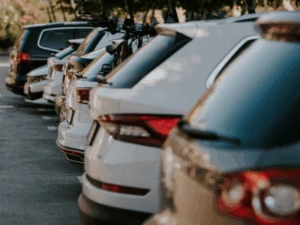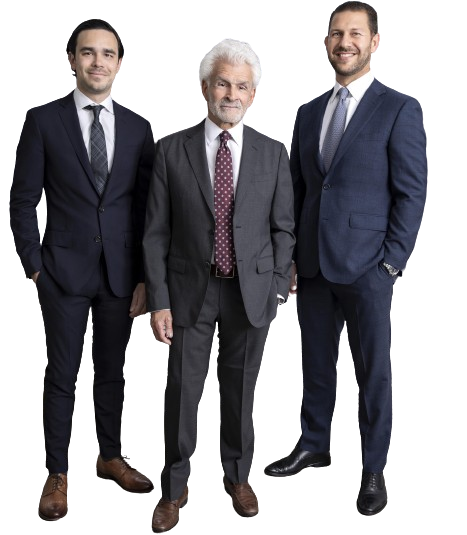
Car accidents in New York City are unfortunately common, but not all crashes are treated the same under the law. If you’ve been catastrophically injured in a motor vehicle accident, one of the most important questions to ask is: was the at-fault driver operating a commercial vehicle or a private one?
This distinction isn’t just technical, and it can significantly affect how your personal injury case proceeds, who can be held liable, and how much compensation you may be able to recover.
At Morelli Law Firm, we’ve successfully handled complex car and truck accident cases against both private individuals and large commercial entities. Our car accident lawyers understand the important differences between private and commercial vehicle accidents in New York City.
What Is a Private Vehicle vs. a Commercial Vehicle?
Private vehicles are those owned and operated by individuals for personal use. They are everyday cars that people drive for commuting, errands, or leisure. The driver is typically personally insured, and legal claims involve that individual and their personal auto insurer.
Commercial vehicles, on the other hand, are used for business purposes and may be owned by a company, employer, or contractor. These vehicles typically carry higher insurance coverage and are subject to state and federal regulations. These types of vehicles include:
- Delivery trucks (UPS, FedEx, Amazon)
- Semi-trucks and tractor-trailers
- Company vans or utility trucks
- Construction vehicles
- Buses (private or public)
- Rideshare vehicles (Uber, Lyft, in certain cases)
- Food trucks or catering vans
- Vehicles transporting hazardous materials
- Fleet cars used by employees for work tasks
Whether the vehicle is marked with a company logo or not, the key factor is whether it was being used for business purposes at the time of the crash.
Why the Difference Matters in a Car Accident Lawsuit
When you’re catastrophically injured in a motor vehicle crash, the path to recovering compensation depends heavily on who caused the accident and what kind of vehicle they were driving. These personal injury cases differ in terms of:
Liability and Responsibility
In a private vehicle accident:
- The driver is usually the only liable party.
- You file a claim against their personal auto insurance.
- If the driver has minimal coverage, your damages may exceed their policy limits.
- If they were uninsured or underinsured, your own insurance may come into play.
In a commercial vehicle accident:
- The driver may still be liable, but so may the company that owns the vehicle.
- Employers can be held liable under the doctrine of respondeat superior, which means they are responsible for the actions of employees performed within the scope of employment.
- The vehicle may be insured under a commercial policy with much higher limits.
- Other parties may be involved, such as fleet maintenance contractors, loading companies, or vehicle manufacturers.
- This broader scope increases your chances of recovering full compensation for catastrophic injuries.
Insurance Coverage Differences
For private vehicles, New York State requires minimum personal auto insurance limits of:
- $25,000 for bodily injury per person
- $50,000 per accident
- $10,000 for property damage
These limits may be insufficient to cover severe injuries such as spinal cord trauma or brain injury.
Most commercial vehicles are required to carry much higher insurance limits. For example:
- Trucks involved in interstate commerce must carry at least $750,000 in liability coverage.
- Vehicles carrying hazardous materials may be required to carry $5 million or more.
- NYC-based delivery fleets and large commercial vehicles often have umbrella policies or multiple layers of coverage.
This means more compensation may be available, but these policies are also vigorously defended by corporate legal teams and insurers.
Applicable Laws and Regulations
Private vehicle accidents are governed by New York’s Vehicle and Traffic Law and standard civil liability principles. However, commercial drivers and vehicles must comply with additional local, state, and federal laws, including:
- Federal Motor Carrier Safety Regulations (FMCSRs): these set standards for truck driver qualifications, hours of service, maintenance logs, and more.
- New York State Department of Transportation (NYSDOT) regulations: cover commercial licensing, inspections, and vehicle use.
- Occupational Safety and Health Administration (OSHA) rules: may apply to drivers employed by certain companies.
- Commercial Driver’s License (CDL) requirements: drivers must maintain proper licensing and training.
- City-specific regulations: including New York City’s requirements for delivery vehicles, ride-share services, and commercial use permits.
Evidence Requirements and Investigation
Unlike private accidents — where it’s often just a police report and witness statements — commercial accident litigation demands aggressive evidence gathering and expert analysis. This is because commercial accident cases often involve more complex evidence, such as:
- Driver employment records
- GPS or telematics data
- Maintenance logs and inspection records
- Surveillance or dashcam footage
- Dispatch and communication logs
- Drug/alcohol testing results (required after some commercial crashes)
You Need a Law Firm with Experience in High-Stakes Commercial Crash Cases
At Morelli Law Firm, we have a proven track record of taking on large corporations, trucking companies, delivery fleets, and commercial insurance carriers. We know how to:
- Investigate corporate policies and uncover violations
- Preserve and analyze complex evidence
- Identify every liable party and source of insurance
- Maximize compensation through negotiation or trial
When you’re facing life-changing injuries, don’t settle for less than you deserve, and don’t go at it alone. Whether you were hit by a distracted driver in a sedan or rear-ended by a delivery truck, you have rights, and we’re here to protect them. Contact our personal injury lawyers today for a free case evaluation. We work on a contingency basis, so you don’t pay unless we win your case!




